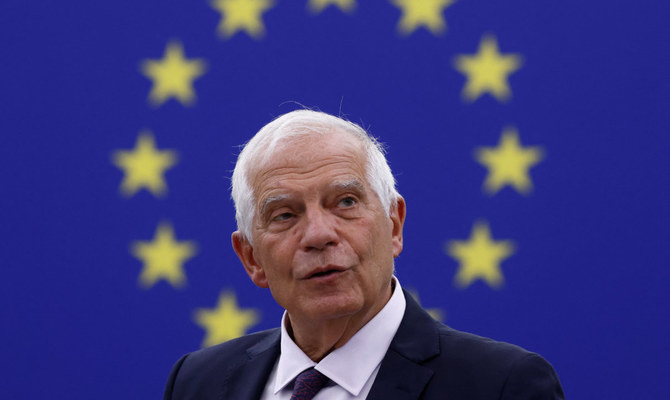STRASBOURG, France: Negotiations to bring Iran and the US back into the nuclear deal curbing Tehran’s nuclear program in exchange for lifting sanctions are in “stalemate,” EU foreign policy chief Josep Borrell said on Wednesday.
“I am afraid that with the political situation in the US, and so many directions without being conclusive, now we are going to stay in a kind of stalemate,” Borrell said.
Borrell has coordinated efforts over the past year and a half to try to revive the 2015 Iran nuclear deal, which was badly damaged when then-President Donald Trump had America withdraw from it in 2018.
Iran has responded by rolling back its adherence to its commitments, greatly increasing its stock of enriched uranium and turning off monitoring cameras operated by the UN nuclear watchdog, the International Atomic Energy Agency.
Last month, Borrell put a text in front of all parties that he described at the time as “final” and which he said was “the best equilibrium point between the positions of everybody.”
But Iran is sticking to a demand that the IAEA draw a line under a probe launched when the agency found traces of nuclear material at three undeclared sites.
And the US political situation has changed as President Joe Biden faces midterm Congressional elections in November that make deals with Iran harder to reach.
Borrell said that, over the past couple of months, “the proposals were converging but unhappily, after the summer, the last proposals are not converging — they are diverging.”
He added: “The last proposals from the Iranians were not helping because we were almost there, then new proposals came and the political environment is not the most propitious. I am sorry to say, but I don’t expect any breakthrough in the next days.”
The European parties to the nuclear deal, Britain, France and Germany, last week said they had “serious doubts” about Iran’s sincerity in wanting the pact restored.
Iran called the joint declaration “unconstructive” and “regrettable.”
Borrell said there was nothing else he could put forward to clear the impasse. “From my side, I don’t have anything more to propose,” he said.

























